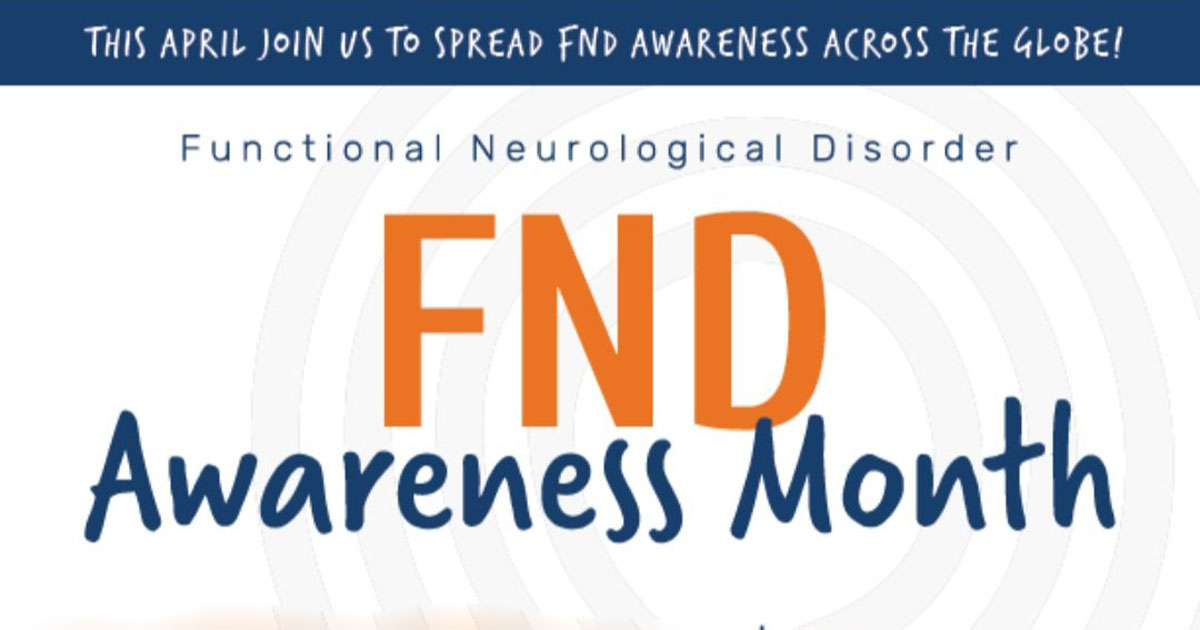
April is FND Awareness Month and I believe that makes it a perfect time to learn more about Functional Neurological Disorder, and help spread understanding of this condition that manifests itself in a bewildering array of symptoms.
Our focus at the Dizziness & Balance Disorders Centre is to strive for accurate assessments, which is why I believe condensed articles like this one have an important role to play in helping sufferers get heard and in encouraging practitioners to dive more deeply into the diagnosis process.
The NHS in Scotland has an elegant definition of FND, as follows:
Functional neurological disorder (FND) describes a problem with how the brain receives and sends information to the rest of the body. It’s often helpful to think of your brain as a computer. In someone who has FND, there’s no damage to the hardware, or structure, of the brain. It’s the software, or program running on the computer, that isn’t working properly. The problems in FND are going on in a level of the brain that you cannot control. It includes symptoms like arm and leg weakness and seizures. Other symptoms like fatigue or pain are not directly caused by FND, but are often found alongside it.
If you got the sense that there can be a diverse variety of symptoms, take a look at this list of some of the presentations:
- Functional limb weakness
- Functional seizures
- Functional tremor
- Functional dystonia
- Functional gait disorder
- Functional facial spasm
- Functional tics
- Functional jerks and twitches
- Functional drop attacks
- Functional sensory symptoms
- Functional cognitive symptoms
- Functional speech and swallowing difficulties
- Persistent postural perceptual dizziness (PPPD)
- Functional visual symptoms
- Dissociative symptoms
Luckily, the Functional Neurological Disorder Society, has compiled a comprehensive collection of resources to give us different ways of approaching and understanding FND. I have collected some of them here but I encourage you to visit the FND Society Resources page to find more.
A review of FND research
The first of two podcast episodes I am sharing in this article is In Conversation With Mark Hallett on Functional Neurological Disorder.
Mark Hallett (National Institute of Neurological Disorders and Stroke, Bethesda, MD, USA) discusses his Review, published in the June 2022 issue of The Lancet Neurology, on functional neurological disorder, and talks about new subtypes of this disorder, diagnostic challenges, and how education is important.
This conversation goes deep into understanding where the medical research sector is at as far as its understanding of FND.
The FND Awareness Podcast
Perhaps one of the most insightful resources produced for FND Awareness Month is the following podcast episode: Functional Neurological Disorder: Putting Principles into Practice.
You can play the episode, below, in which the Functional Neurological Disorder Society’s Alan J. Carson, MD of the University of Edinburgh, FNDS President, and Dara Albert, DO, MEd of Nationwide Children’s Hospital, FNDS Virtual Education Course Co-Chair, discuss the virtual education course “Functional Neurological Disorder: Putting Principles into Practice.”
This is important because education is one of the most significant steps we need more people to take, to build awarness and create the environment for more effective assessments.
Meet People With FND
Another interesting piece of media content produced for FND Awareness Month, is this short video put together by YouTuber, Sassy FND Life.
I hope you have found these resources helpful.
